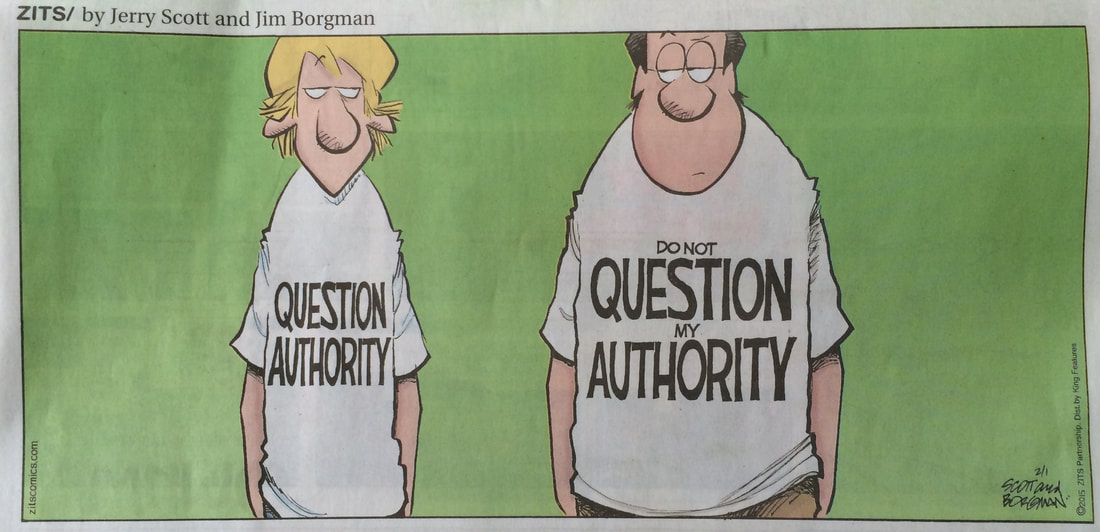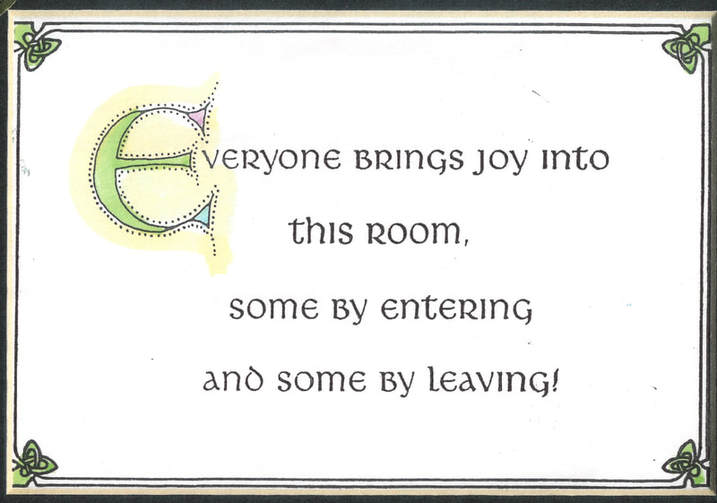Maybe if people are told that the brain is an app, they'll start using it.
My father taught me about TIME TRAVEL.
"If you don't straighten up, I'm going to knock you into the middle of next week!"
My mother taught me RELIGION.
"You better pray that will come out of the carpet."
Things that go through your mind when you can't sleep...
If you attempt to rob a bank you won't have any trouble with rent/food bills for the next 10 years, whether or not you are successful.
Do twins ever realize that one of them is unplanned?
What if my dog only brings back my ball because he thinks I like throwing it?
If poison expires, is it more poisonous or is it no longer poisonous?
Which letter is silent in the word "Scent," the S or the C?
Why is the letter W, in English, called double U? Shouldn't it be called double V?
Every time you clean something, you just make something else dirty
The word "swims" upside-down is still "swims."
Intentionally losing a game of rock, paper, scissors is just as hard as trying to win.
100 years ago everyone owned a horse and only the rich had cars. Today everyone has cars and only the rich own horses.
The doctors that told Stephen Hawking he had two years to live in 1953 are probably dead.
If you replace "W" with "T" in "What, Where and When," you get the answer to each of them.
Many animals probably need glasses, but nobody knows it.
If you rip a hole in a net, there are actually fewer holes in it than there were before.
My mother taught me GENETICS.
"You're just like your father."
My father taught me about JUSTICE.
"One day you'll have kids, and I hope they turn out just like you!”
America is the only country where a significant proportion of the
population believes that professional wrestling is real but the moon landing was faked.
Q: What do you get when you cross a dyslexic, an insomniac, and an agnostic?
A: Someone who lies awake at night wondering if there is a dog.
A husband and wife were driving through Louisiana. As they approached Natchitoches, they started arguing about the pronunciation of the town. They argued back and forth; then they stopped for lunch.
At the counter, the husband asked the waitress, "Before we order, could you please settle an argument for us? Would you please pronounce where we are very slowly?" The waitress leaned over the counter and said, "Burrr-gerrr Kiiing."
Lead us not into temptation. Just tell us where it is; we'll find it. – Sam Levenson
There are some people who, if they don't already know, you can't tell 'em. —Yogi Berra
A man may be a fool and not know it, but not if he is married. — H. L. Mencken
We are all in the gutter, but some of us are looking at the stars. — Oscar Wilde
Make crime pay: become a lawyer. —Will Rogers
Wine is constant proof that God loves us and loves to see us happy. – Benjamin Franklin
Get your facts first, then you can distort them as you please. - Mark Twain
O Lord, help me to be pure, but not yet. – Saint Augustine
Roses are red, violets are blue, I'm schizophrenic, and so am I. – Oscar Levant
Nowadays we make quick work of our courtships; it's our divorces that we spend a lot of time on. – Richard Moore
No sensible decision can be made any longer, without taking into account not only the world as it is, but the world as it will be. – Isaac Asimov
I'd rather have a bottle in front of me than a frontal lobotomy.
Dorothy Parker
People my age are so much older than I.....
Anonymous
An elderly, but hardy cattleman from Texas once told a young female neighbor that if she wanted to live a long life, the secret was to sprinkle a pinch of gunpowder on her oatmeal each morning.
She did this religiously and lived to the age of 103. She left behind 14 children, 30 grandchildren, 21 great-grandchildren, five great-great-grandchildren and a 40 foot hole where the crematorium used to be.
I’d sure like to be able to do this!




 RSS Feed
RSS Feed